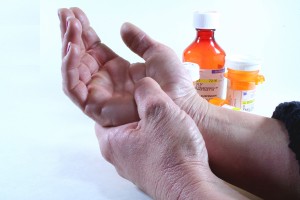 Enduring various sort of physical pain in a minimal scale to high scale is fairly common in our day to day life. Physical pain can be of various types- it can be caused due to minor or major accidents, or due to other common bodily disorders like headache, stomach, etc. in a very common ways. Severe or acute pain can be caused by serious terminal illnesses or major accidents/injuries. Arthritis is a leading cause of pain in the aging population.
Enduring various sort of physical pain in a minimal scale to high scale is fairly common in our day to day life. Physical pain can be of various types- it can be caused due to minor or major accidents, or due to other common bodily disorders like headache, stomach, etc. in a very common ways. Severe or acute pain can be caused by serious terminal illnesses or major accidents/injuries. Arthritis is a leading cause of pain in the aging population.
Enduring physical pain can be quite a disturbing occurrence as we all know and all of us at some point or the other have endured pain. But, enduring pain and draining your energy and yourself in the process is not the likelihood. It is our pain management ability that makes the difference.
When we talk or even think of pain management, the instant word that sprang up in our mind is the thought of painkillers.
What are painkillers?
Painkillers are a group or type of drugs that belongs to the analgesic category. The sole purpose of painkillers is to provide quick and easy pain relief. Painkillers come in various forms and can be administered in numerous ways like- topically, orally, through injections and are both available systematically and as over the counter drugs depending on the severity and urgency of the pain management procedure. Painkillers includes both familiar pain relief solution available at any supermarket such as aspirin and ibuprofen, as well as more serious medication for severe pain such as co-codamol 500/30mg and codeine phosphate.
Benefits of having painkillers.
- Provides easy, hassle free (mostly) and almost quick pain relief.
- Certain variety and formulations of painkillers are said to lower the risk of heart diseases, lowers blood pressure, prevents asthma and also have other health benefits apart from its usual analgesic effect.
- Systemic painkillers are known for their long term and quick action which often allows the medical care providers to perform complex surgeries with considerable ease and to the patient’s comfort.
- Individuals with severe chronic ailments which causes acute pain, led a relieved and much improved lifestyle just because of the painkillers.
- The ultimate pain relief option for individuals suffering from migraine, headache, stomach, etc.
- You can buy painkillers like co-codamol 500/30mg online in the UK with no prescription from approved sites.
Risks of having painkillers.
– Excess consumption of painkillers for a long duration makes your immune system defensive against that particular drug as a result of which it does not work on your body anymore.
- Painkillers often makes one drowsy and can also cause occasional indigestion.
- May cause tension or anxiety and increased drug dependency.
- Pain tolerance usually diminishes in an individual, if he or she consumes painkillers for a long time.




